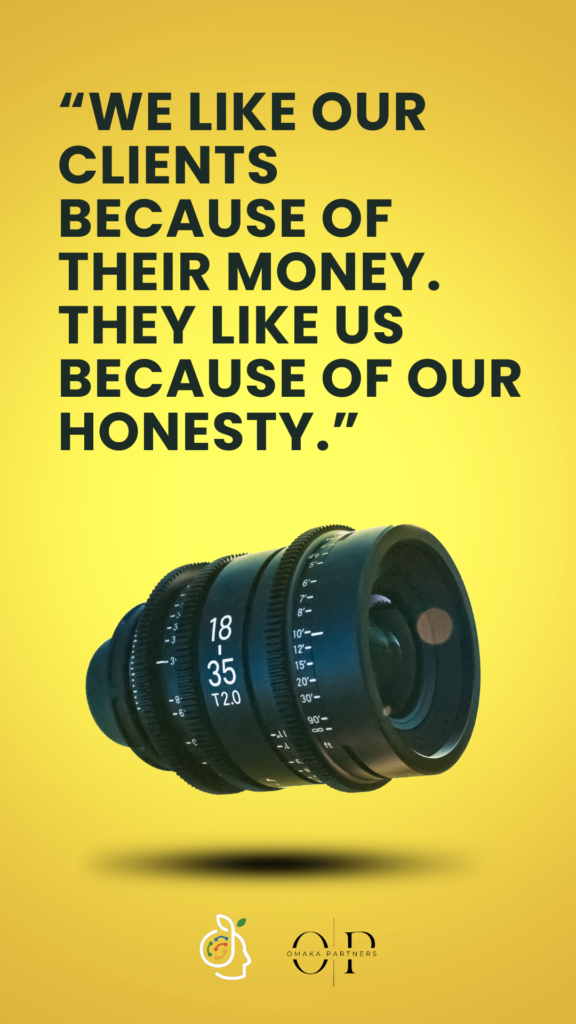Advice
The Delicate Art of Asking for Film Funding

Crafting an effective pitch for your film isn’t just about showcasing your project; it’s also about presenting yourself as a professional, collaborative partner. Let’s delve deeper into each key strategy, emphasizing transparency, humility, and respect for the industry’s dynamics.
1. Know Your Audience: Imagine you’re pitching a horror film to a distributor known for producing family-friendly content. Instead of pushing your project blindly, acknowledge their usual genre preferences and tailor your pitch accordingly. Express your understanding of their audience and demonstrate how your film could align with their interests, even if it’s outside their typical scope.
2. Create a Comprehensive Package: Picture yourself as a producer receiving a pitch. You’d want all necessary materials neatly organized, right? Treat your pitch package like a gift to your potential partners. Include a well-written script, a compelling synopsis, a catchy logline, and a visually appealing lookbook. Don’t forget to highlight your team’s strengths and past achievements in the bios section. By presenting a polished package, you show respect for their time and attention.
3. Demonstrate Expertise and Passion: Imagine you’re discussing your film with a seasoned producer. Instead of overstating your knowledge or downplaying your enthusiasm, strike a balance. Share your insights on the subject matter and filmmaking process, but remain open to feedback and collaboration. Adopt an attitude of continuous learning and improvement, showing that you’re receptive to constructive criticism and willing to adapt.
4. Leverage Relationships: Put yourself in the shoes of someone approached for a referral. You’d likely be more inclined to help if the person seeking assistance is humble, appreciative, and respectful. When reaching out to industry contacts for introductions, acknowledge the value of their relationships and offer something in return, whether it’s gratitude, assistance, or collaboration opportunities in the future.
5. Practice and Refine: Imagine you’re delivering your pitch to a busy producer. They appreciate brevity and clarity, so rehearse your pitch until it flows naturally and succinctly. Avoid unnecessary jargon or self-aggrandizement. Instead, focus on communicating your story, vision, and passion in a way that resonates with your audience. Be prepared to address questions and concerns with humility and honesty.
6. Follow Up and Persist: Consider the perspective of a producer receiving numerous pitches daily. They’re more likely to remember those who follow up professionally and persistently without being pushy. After your initial pitch, send a polite follow-up email expressing gratitude for their time and reiterating your enthusiasm for the project. Respect their decision, whether it’s a yes, no, or a request for further discussion.
In conclusion, navigating the film industry requires not only talent and creativity but also humility, transparency, and respect for established relationships. Invest in yourself by honing your craft, cultivating genuine connections, and approaching each interaction with authenticity and humility. While it’s essential to advocate for your project, remember that success often comes from collaboration and mutual respect.
For comprehensive consulting services and strategic marketing tailored to your film’s success, look no further than BolanleMedia. Our reputable team offers direct access to distribution channels, investors, and a roster of top-tier talent, ensuring your project receives the attention and support it deserves. Let us guide you through every stage of the filmmaking journey, from concept to distribution, and turn your cinematic vision into a reality. Reach out to BolanleMedia for all your business needs and watch your film thrive in the competitive landscape of the entertainment industry.
Advice
Why Your Phone Videos Look FLAT

Modern smartphones offer incredible video capabilities, but sometimes the footage can look flat, lacking depth and vibrancy. This article explores five practical tips to elevate your phone videos, with a focus on lighting techniques like bounce lighting and natural light, as well as using the highest quality settings available.
1. Optimize Lighting: Bounce Lighting and Natural Light
Lighting is one of the most critical factors in creating visually appealing videos. Here are two effective techniques:
- Bounce Lighting: Bounce light involves redirecting light off a surface (e.g., walls, ceilings, or reflectors) to create soft, diffused illumination. This technique avoids harsh shadows and gives your subject a natural, cinematic glow. For example, bouncing light off the ceiling turns the entire surface into a softbox, wrapping light around your subject evenly. This method works well in small spaces or when you lack expensive modifiers.
- Natural Light: Leveraging daylight is an easy and cost-effective way to enhance your videos. Position your subject facing a window or shoot during golden hours (early morning or late afternoon) for flattering, warm tones. Avoid direct sunlight as it can create harsh shadows; instead, opt for diffused natural light for a balanced look.
2. Shoot in the Highest Quality Available
Always set your smartphone camera to its maximum resolution and frame rate. For example:
- Resolution: Use 4K for sharp details.
- Frame Rate: Choose 30fps for standard motion or 60fps for smoother movement.
Higher-quality settings capture more detail and color information, making post-production adjustments easier.

3. Improve Composition
A well-composed shot adds depth and interest to your videos:
- Use the rule of thirds to position your subject off-center.
- Incorporate foreground and background elements to create layers.
- Avoid cluttered backgrounds that distract from the main subject.
4. Stabilize Your Shots
Shaky footage can ruin the professional feel of your video:
- Use a tripod for static shots.
- Invest in a gimbal or stabilizer for smooth motion during handheld filming.
5. Enhance Color and Contrast in Post-Production
Even with perfect lighting and composition, flat videos may need color grading:
- Adjust contrast to add depth.
- Fine-tune saturation and vibrance to make colors pop without oversaturation.
- Use LUTs (Look-Up Tables) designed for mobile footage to achieve cinematic color profiles.
Conclusion
Flat phone videos often result from poor lighting, low-quality settings, or lack of post-production enhancements. By using techniques like bounce lighting, maximizing natural light, shooting in high resolution, stabilizing your shots, and refining colors in editing software, you can transform dull footage into vibrant, professional-looking videos.
Bolanle Media covers a wide range of topics, including film, technology, and culture. Our team creates easy-to-understand articles and news pieces that keep readers informed about the latest trends and events. If you’re looking for press coverage or want to share your story with a wider audience, we’d love to hear from you! Contact us today to discuss how we can help bring your news to life
Advice
How to Create Scenes That Resonate and Spread

Creating a scene that resonates with audiences and achieves virality is a goal for many filmmakers. A perfect example of this is the iconic “Are you gay?” scene from the movie “For Colored Girls?” (2010), starring Janet Jackson. This scene, featuring a direct and unexpected question, has lived on in popular culture, sparking countless memes and discussions.
So, what are the elements that make a scene stick and spread? Let’s break down key strategies, drawing inspiration from this memorable moment:
1. Embrace Authenticity and Raw Emotion
The power of the “Are you gay?” scene lies in its raw authenticity. The question, posed by Patricia, played by Janet Jackson (IMDb), is delivered with a piercing directness that cuts through typical conversational niceties. Gavin, portrayed by Malik Yoba (IMDb), responds with palpable shock and discomfort. This genuine emotional exchange, even within a fictional context, creates a relatable and compelling moment for viewers.

2. Build Tension and Suspense
Before the pivotal question, the scene simmers with unspoken tension. The dialogue hints at underlying conflicts and secrets, creating an atmosphere of suspense. This buildup is crucial. By carefully layering tension, you amplify the impact of the key moment when it arrives. Consider using techniques such as:
- Subtext: Imply conflict through veiled language and body language.
- Pacing: Control the rhythm of the scene to heighten anticipation.
- Dramatic Irony: Let the audience know something the characters don’t.
3. The Power of the Unexpected
The “Are you gay?” question is so effective because it’s unexpected. It disrupts the flow of the conversation and catches both the character and the audience off guard. Introduce unexpected elements to jolt your audience and make your scene unforgettable. This could be a surprising plot twist, an unconventional line of dialogue, or a sudden shift in tone.
4. Relatability and Social Commentary
While the specific scenario in “For Colored Girls?” might not be universally relatable, the underlying themes of truth, identity, and relationships are. Viral scenes often tap into broader social issues or universal human experiences. By embedding your scene within a relevant social context, you increase its potential to resonate with a wider audience.
5. Visual Storytelling and Composition
While dialogue is crucial, don’t underestimate the power of visual storytelling. The framing, camera angles, and overall visual composition can significantly enhance the emotional impact of a scene.

6. Call to Action & Shareability
In today’s digital age, a scene’s potential for virality is amplified by its shareability. Create moments that are easily quotable, meme-able, or remixable. This encourages viewers to share the scene with their networks, expanding its reach exponentially.
By incorporating these elements into your filmmaking, you can increase your chances of creating scenes that not only resonate with audiences but also have the potential to spread and become cultural touchstones. For more advice and insights on filmmaking, visit Bolanlemedia.com in the advice article section.

Bolanle Media covers a wide range of topics, including film, technology, and culture. Our team creates easy-to-understand articles and news pieces that keep readers informed about the latest trends and events. If you’re looking for press coverage or want to share your story with a wider audience, we’d love to hear from you! Contact us today to discuss how we can help bring your news to life
Advice
Common Mistakes to Avoid When Networking in the Film Industry

Networking in the film industry is essential for building relationships and advancing your career, but it’s also easy to make missteps that can harm your reputation or alienate potential collaborators. Here are some of the most common mistakes to avoid and tips to ensure your networking efforts are effective:

1. Being Too Pushy or Self-Centered
One of the quickest ways to ruin a connection is by aggressively pitching your projects or dominating conversations. Nobody enjoys being cornered by someone who only talks about themselves. Instead, focus on building genuine connections by asking thoughtful questions like, “What inspired you to work on [specific project]?” Show interest in their work, and let the conversation flow naturally. Networking is a two-way street—make sure you’re giving as much as you’re hoping to receive.
2. Neglecting Follow-Ups
You’ve had a great conversation with someone at a festival or event, but then… radio silence. Failing to follow up is one of the biggest missed opportunities in networking. A simple email or message thanking them for their time and referencing something specific from your conversation can make a lasting impression. For example: “It was great meeting you at [event]! I really enjoyed hearing about your approach to [topic]. Let’s stay in touch—I’d love to collaborate someday.”
3. Talking Shop Constantly
While it’s tempting to dive into discussions about your latest screenplay or directing project, obsessively talking about work can come off as transactional and boring. People want to connect on a human level first. Engage in casual conversations about shared interests, current events, or even favorite films. For instance, “What did you think of [film that screened at the festival]?” can be a great icebreaker that leads to deeper discussions.

4. Overusing Flattery
Compliments are great—when they’re genuine. But excessive flattery or trying too hard to impress someone can feel manipulative and insincere. Instead of saying, “You’re the greatest producer I’ve ever met!” try something more specific and authentic like, “I really admire how you handled [specific challenge] in your last project—it was inspiring.” People appreciate thoughtful praise over empty words.
5. Not Respecting Boundaries
Networking is about mutual respect, and that means recognizing when someone isn’t interested or needs space. Avoid interrupting conversations, monopolizing someone’s time, or following them around at an event like a shadow. If someone seems busy or disengaged, politely excuse yourself and move on—it’s better to leave on good terms than risk becoming a nuisance.

6. Forgetting Integrity
Your reputation in the film industry is everything, so always do what you say you will do. If you promise to send over your reel or introduce someone to a colleague, follow through promptly. Reliability builds trust and shows that you value others’ time and effort. Conversely, failing to deliver on promises can quickly erode relationships and harm your credibility.
7. Overlooking Peer Connections
Don’t make the mistake of focusing only on high-profile contacts while neglecting peers who are at similar stages in their careers. Many successful collaborations come from horizontal networking—connecting with fellow emerging filmmakers who share your passion and vision. These relationships often grow into long-term partnerships that benefit everyone involved.
8. Being Unprepared
Showing up unprepared—whether it’s not knowing anything about the person you’re speaking with or failing to have business cards or a polished pitch—can waste both your time and theirs. Research key attendees beforehand, prepare a concise introduction about yourself, and have links to your portfolio ready if needed.
Final Thoughts
Networking in the film industry is all about authenticity, respect, and meaningful interactions—not just handing out business cards or pitching projects nonstop. By avoiding these common mistakes—such as being overly pushy, neglecting follow-ups, or failing to respect boundaries—you can build lasting relationships that support your creative journey and open doors to exciting opportunities. Remember: networking isn’t just about what others can do for you; it’s about creating connections that benefit everyone involved!
Bolanle Media covers a wide range of topics, including film, technology, and culture. Our team creates easy-to-understand articles and news pieces that keep readers informed about the latest trends and events. If you’re looking for press coverage or want to share your story with a wider audience, we’d love to hear from you! Contact us today to discuss how we can help bring your news to life

 Entertainment1 day ago
Entertainment1 day agoWhat’s Really Going On With Justin Bieber? Inner Circle Speaks

 News1 day ago
News1 day agoWalmart, TJ Maxx Equip Workers with Body Cams as Shoplifting Soars

 Politics1 day ago
Politics1 day agoWho Really Holds the Title for Most Deportations in America?

 News2 days ago
News2 days agoShannon Sharpe Accused of Rape—Ex-Girlfriend Sues for $50 Million

 News2 days ago
News2 days agoAre Gen Zers Losing the Art of Friendship? Here’s What Research Says

 News2 days ago
News2 days agoAre Hotel Chains Turning a Blind Eye? Women Targeted as Staff Hand Over Room Keys to Predators

 Tech3 days ago
Tech3 days agoHow to Get a Google AI Certificate for Free

 World News4 days ago
World News4 days agoWhich Cardinal Could Become the Next Pope?





































